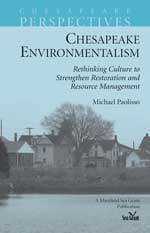Knauss legislative fellowships in Congress help build careers — and they're fun and educational. See our video and fact sheet for details.
National Public Radio Features Maryland Sea Grant-Funded "Septic Detectives"

“Septic detectives” — that’s how National Public Radio science reporter Christopher Joyce describes three Maryland scientists funded by Maryland Sea Grant who are working to develop a new way of tracking water pollution that has degraded the Chesapeake Bay.
For his report broadcast this week, Joyce accompanied scientists Lora Harris and Andrew Heyes of the University of Maryland Center for Environmental Science Chesapeake Biological Laboratory (CBL) as they collected water samples at sites in Maryland. Harris, Heyes, and a CBL colleague, Michael Gonsior, are building a technique to detect the tell-tale chemical signature of nitrogen that seeps from septic tanks into the Chesapeake Bay. Excess levels of this nutrient help to create low-oxygen “dead zones” in the Bay.
The CBL scientists hope the new tool can be used to study the effectiveness and impact of new septic-system designs that utilize advanced technology for removing nitrogen from water. The project could also help researchers map the movement of septic-system nitrogen through the estuary’s water. That knowledge could inform efforts to monitor the effects of ongoing efforts by county and local governments to reduce the flow of nutrients into the Bay as part of a multiyear restoration effort.
You can read more details about the CBL research project in this Maryland Sea Grant summary. And find a complete list of other currently research projects funded by our organization here. Or search all of our research projects here.
Joyce notes in his NPR report that these research projects would disappear under a proposal from the White House to eliminate funding for the National Sea Grant College Program, which funds Maryland Sea Grant.
Photo, top: Coastal ecologist Lora Harris heads a research team working on a chemical fingerprint to pinpoint nitrogen pollution from septic tanks. Credit: Chris Joyce, National Public Radio






